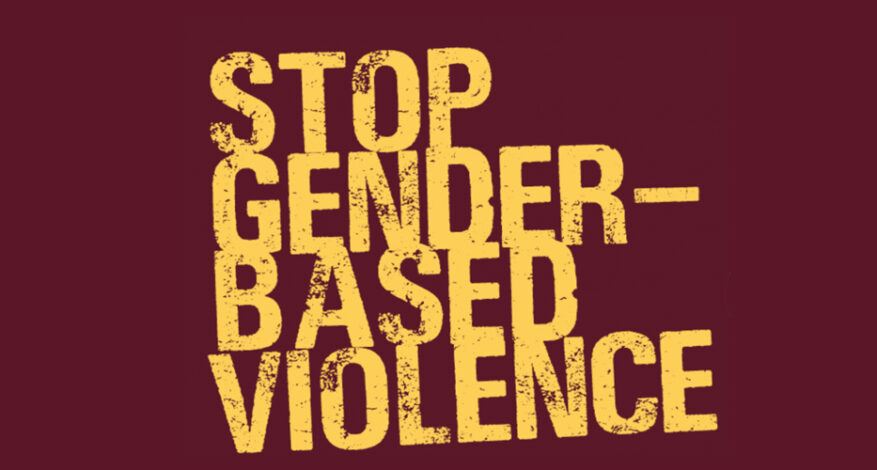On January 17, 2023, justices and judges in Nigeria converged at a capacity-building workshop in Abuja. The workshop was the second in the series organised by the Federal Ministry of Justice, for key sector players involved in the investigation, prosecution and trial of offences on the very complex and vexed issue of Sexual and Gender-Based Violence (SGBV).
It became imperative because of the need for the justice sector stakeholders to provide additional support structures in the form of sensitization, support for victims of SGBV offences, as well as specialised training for key sector players involved in the investigation, prosecution and trial of SGBV-related offences.
This is because sexual and gender-based violence has become a disturbing menace in every culture, community and across social groups, often manifesting in different forms.
These forms can be physical, verbal, psychological, sexual, socio-economic or domestic. Also, emotional abuse often coexists with other forms of abuse, as it is the most difficult to identify. Many of its potential consequences, such as learning and speech problems and delays in physical development, can also occur in children who are emotionally abused.
Indeed, despite efforts by the government, groups and civil society organisations (CSOs), incidences of gender-based violence are growing in Nigeria so we, at Daily Trust welcome any effort aimed at addressing it.
According to the 2018 National Demographic Health Survey (NDHS), 33 per cent of women in the age bracket of 15-49 in Nigeria experienced physical or sexual violence; 24 per cent have experienced only physical violence, two per cent have experienced only sexual violence, while seven per cent have experienced both physical and sexual violence.
A November 2021 report by the United Nations Women stated that 48 per cent of Nigerian women have experienced at least one form of violence.
Also, a report by the Sexual Assault Referral Centre (SARC) said at least 5,623 cases of gender-based violence were recorded between January 2018 to July 2022, in Nigeria’s north-eastern states of Borno, Yobe and Adamawa. Obviously, the insurgency exacerbated this along with reported cases of rape in the camps for Internally Displaced Persons (IDPs).
Furthermore, the Lagos State Domestic and Sexual Violence Agency recently revealed that 4,860 domestic and sexual violence cases were recorded in 2022, with 11 women dying from domestic violence incidents in 20 months. Disaggregated data on the 11 women showed that five died in 2022 while six died in 2021. But the good news is that all the men involved in the 11 cases are already being prosecuted and are in custody.
According to the September 2022 report by UNFPA Nigeria, “over 90 per cent of the women experiencing violence either do not report their experiences to anyone or informed their parents only.”
This indeed calls for urgent measures to tackle/ reduce the incidence of SGBV. Luckily, Nigeria has always set the tone in Africa, which resulted in the signing, on May 25, 2015, of the landmark legislation, the Violence Against Persons (Prohibition) Act of 2015 (VAPP).
We commend the justices and judges for taking this initiative and making moves to address this menace just as we urge the federal government to as a matter of urgency, deploy far-reaching policy, institutional and legislative measures to curb the growing menace of SGBV offences in our communities through the diligent implementation of the provisions of the act.
After all, it was meant to eliminate violence in private and public life, prohibit all forms of violence, including physical, sexual, psychological, domestic, harmful traditional practices, discrimination against persons and provide maximum protection and effective remedies for victims and punishment of offenders.
Also, the measures arising from the presidential directive of 2020 on the eradication of SGBV should be implemented. The problem we have always had in this country is not the absence of laws, but the implementation. We, therefore, call for the implementation of all laws that will help tackle this issue. Towards this, the Inter-Ministerial Management Committee (IMC) on the Eradication of SGBV, the SGBV Response Unit of the Federal Ministry of Justice established to facilitate access to justice for victims of SGBV-related offences and the Prosecution Hub from relevant MDAs to ensure a coordinated and effective investigation and prosecution of SGBV cases at the federal level, must be fully functional. They should not exist in name.
In addition, the Inspector General of Police should ensure the functionality of the gender desks established at all police commands and stations to attend to cases of gender-based violence.
It is commendable that the Chief Judge of the Federal Capital Territory (FCT) designated four special courts for the trial of SGBV cases. This should be copied by all the 36 states of the federation.
There should also be awareness campaigns, including health and counselling services, especially in primary, secondary and tertiary institutions to enable students to speak out and work against sexual and gender-based violence in their homes, schools and communities.
In addition, Nigeria should prioritise narrowing gender gaps and equalising access to health care, agriculture, education, economic empowerment and political participation for both men and women.

 Join Daily Trust WhatsApp Community For Quick Access To News and Happenings Around You.
Join Daily Trust WhatsApp Community For Quick Access To News and Happenings Around You.

